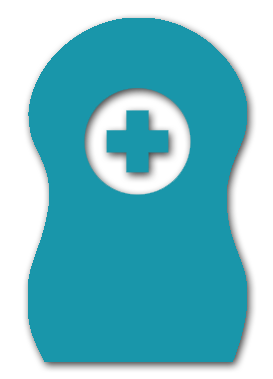
18 Month Visit
This is one of the most perplexing ages of childhood. You wonder how you could have produced something so wild and dangerous. In general, children this age are full of curiosity and energy. They are incredibly fun and every moment should be cherished!
What most babies do by this age:
Social/Emotional Milestones
- Moves away from you, but looks to make sure you are close by
- Points to show you something interesting
- Puts hands out for you to wash them
- Looks at a few pages in a book with you
- Helps you dress him by pushing arm through sleeve or lifting up foot
Language/Communication Milestones
- Tries to say three or more words besides “mama” or “dada”
- Follows one-step directions without any gestures, like giving you the toy when you say, “Give it to me.”
Cognitive Milestones (learning, thinking, problem-solving)
- Copies you doing chores, like sweeping with a broom
- Plays with toys in a simple way, like pushing a toy car
Movement/Physical Development Milestones
- Walks without holding on to anyone or anything
- Scribbles
- Drinks from a cup without a lid and may spill sometimes
- Feeds herself with her fingers
- Tries to use a spoon
- Climbs on and off a couch or chair without help
Source: CDC – Learn the Signs, Act Early
The “Terrible Twos”
The famous “Terrible Twos” are probably better named the “terrible 1 1/2 – 2 1/2”. Unfortunately that means sometimes you’ll feel that your toddler is already there. This famous frustrating period comes up because kids this age are struggling between wanting to be with and be like their parents and developing their own identities.
Offering choices is often a helpful strategy. If you ask, “Do you want a cheese sandwich?” the answer will usually be “no”. An alternative is to ask “Do you want a cheese sandwich or a turkey sandwich?”
Part of this behavior is your child trying to find ways to communicate. Some of the possibilities that they explore like hitting, throwing or screaming are obviously not appropriate communication tools. Let them know that inappropriate communication techniques do not result in getting what they want. You can start to encourage them to use words to express desires.
Potty Training
Although it’s too soon to start formal potty training, you may want to get a simple potty chair for them to start “practicing” sitting on. You can start talking about going to the potty and letting them sit there (even with clothes on) when other family members go to the restroom. You’ll probably start actual toilet training at age two. It’s good to set the stage now for that to be a fun and laid-back experience.
Safety
Since toddlers enjoy exploring their world, make sure that the part of the world that they explore is as safe as is possible.
- While playing outside, toddlers will want to explore a bit further from their parents. Let them, but make sure they don’t have access to dangerous locations like the street.
- Your child should ride in a car seat at all times. It’s safer for her to be rear facing until she’s two years old.
- Keep emergency numbers, including the Poison Control Help Line number at 1-800-222-1222, near the phone.
Screen Time
This is a good time to make sure that you’re limiting screen time to 30-60 minutes a day. Although sometimes videos on your phone can be a good distraction (like while at the doctor’s office), avoid letting the screen ‘babysit’ your toddler. Screen time that you spend with your toddler interacting with the content together can be healthier but should still be limited.
Diet
- There’s a balance between forcing toddlers to eat what you prepare and having them actually eat food. You may want to prepare one meal a day that you’re pretty sure they like and push them toward eating other foods that you’ve made for the family at another meal.
- Your toddler enjoys self-feeding and by now should be starting to use spoons or forks fairly well. They will still make a mess, so don’t expect perfect table manners yet!
- Avoid sweets and empty calories. Your child doesn’t have to have juice, but if you introduce 100% fruit juice, limit it to less than 4 oz per day.
- Whole milk remains important and toddlers still need about 16-24 oz of milk per day. This should be served in a sippy or straw cup. Bottles should be gone by this age.
- Continue offering a variety of ‘healthy food’ options including different types of vegetables to keep the diet as varied as is possible.
- The appetite may vary at lot at this age and may even seem to fall.
Discipline
- Discipline should be well into place by this time with the parent very firmly in control. Make sure that the roles are not reversed at
this point. - Remember, it is crucial to be consistent. Praise your child for desired behavior and admire his good qualities. Limits should be clear and firm.
- Time-outs don’t really work well at this age but will make more sense at age two.
Immunizations
The only vaccine scheduled for today is the second dose of the Hepatitis A vaccine. It protects against a serious liver disease caused by the hepatitis A virus. It is spread by ingesting the virus in contaminated food or drink.
If your child is up to date on his vaccinations, the only vaccines between now and the 5 year checkup are seasonal (like flu vaccines), but it is important to continue checkup visits every year.
